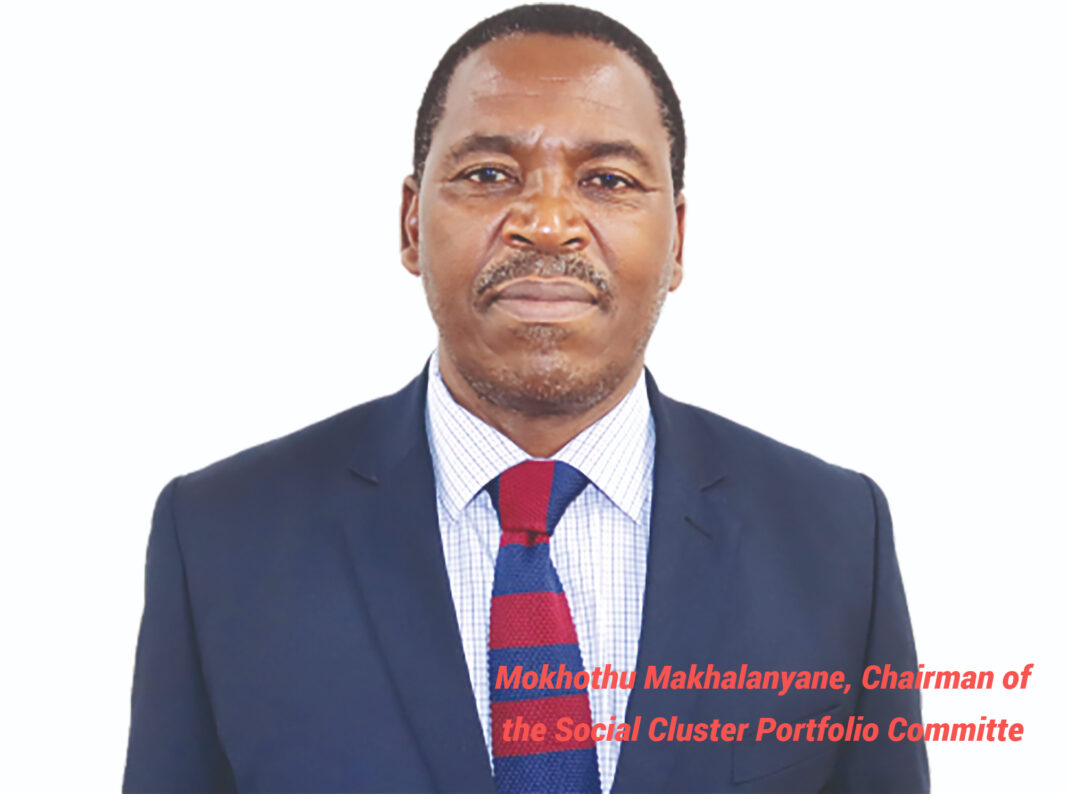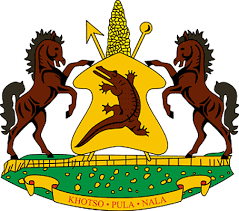… Yet hundreds remain unemployed
Lesotho has been placed on the international red list for its critically low nurse-to-patient ratio, a stark reflection of the country’s worsening healthcare crisis, even as hundreds of qualified Basotho nurses remain unemployed.
This was revealed in Parliament by Mokhethoaneng constituency Member of Parliament, Mokhothu Makhalanyane.
Makhalanyane highlighted the troubling contradiction that while the World Health Organisation (WHO) has classified Lesotho as facing a severe shortage of nursing staff, more than 800 trained nurses in the country cannot secure employment.
He attributed this to prolonged bureaucratic hurdles, particularly the requirement for approval from the Minister of Finance before new posts can be created.
According to him, this bottleneck has persisted since 2023 and has created deep frustration. He warned that the crisis was worsening, with about 89 families expected to lose their income due to impending retrenchments by December.
Makhalanyane further stressed that Lesotho’s failure to absorb its own nurses was also a lost economic opportunity. He cited an instance in which 30 Basotho nurses applied for positions in South Africa in a single day, representing a potential revenue gain of M600,000 for the neighbouring country.
He added that while high-income countries such as Canada and Ireland were interested in hiring Basotho nurses, Lesotho’s red-list status prevented them from doing so, as global recruitment relies on verified workforce numbers rather than policy assurances.
The crisis is reinforced by deep fiscal constraints. Minister of Tourism and former Minister of Health, Motlatsi Maqelepo, confirmed that the doctor- and nurse-to-patient ratios were “very bad,” contributing directly to the country’s poor health outcomes. Maqelepo also revealed that Lesotho’s public-sector wage bill was among the highest globally, an issue that prompted the African Union (AU) to withdraw an estimated M400 million in annual budget support, because the funds were perceived to be financing an unsustainably high salary bill.
He lamented that the country’s internal mismanagement has now become an obstacle to Basotho nurses seeking better opportunities abroad as attempts to preserve local staffing levels block them from taking up jobs even in South Africa.
He noted that, unlike South Africa, which relies heavily on the private sector for health workforce absorption, Lesotho remains trapped within the limits of its public-sector wage structure.
In a significant intervention, Speaker of the National Assembly, Tlohang Sekhamane, proposed privatisation of health services as a way to bypass wage bill constraints.
Sekhamane pointed to the existing infrastructure of church-owned health facilities under the Christian Health Association of Lesotho (CHAL), which already operate as private entities. The government currently supports CHAL institutions through subventions rather than salaries.
He argued that expanding their private nature could help resolve staffing shortages without inflating the public wage bill.
“The problem is already solved because there is already an infrastructure,” he said, expressing concern that Lesotho had not yet moved to privatise more of its health services.
He described the health sector as a highly “attractive, lucrative area” that could draw staff away from overburdened public institutions.
Responding to the debate, Minister of Public Service Mphuthi Mphuthi agreed that the wage bill remained a major constraint, and acknowledged that the government cannot hire all unemployed health workers.
Mphuthi added that the Ministry of Labour was signing Memorandums of Understanding (MOUs) with other countries to create employment opportunities for Basotho abroad, while simultaneously working on strategies to retain local doctors.
According to the 2022 study Health Workforce Supply, Needs and Financial Feasibility in Lesotho: A Labour Market Analysis, Lesotho had approximately 20,942 active health workers across 18 health occupations in 2020.
The majority were community health workers (69 percent), followed by nurses and midwives (17.9 percent). Medical practitioners accounted for only 2 percent of the total health workforce.
The study found significant unemployment among trained professionals. Nearly one in three professional nurses and midwives (28.43 percent) were unemployed. Unemployment also affected 20 percent of associate nurse professionals, 13.26 percent of pharmacy technicians, and 24.91 percent of laboratory technicians.
Lesotho had 20.73 doctors, nurses and midwives per 10,000 people in 2020. This figure could rise to 31.49 per 10,000 by 2030. However, the projected need, based on disease burden, population growth and demographic changes, was 46.72 health professionals per 10,000 people by 2030.
“The existing stock of health workers covered only 47 percent of the needs and could improve to 55 percent in 2030. The financial space for the health workforce (HWF) employment was roughly US$40.94 million in 2020, increasing to about US$66.69 million by 2030,” the study noted.
“In comparison, the cost of employing all health workers already in the supply pipeline (in addition to the currently employed ones) was estimated to be US$61.48 million but could reach US$104.24 million by 2030. Thus, a 33 percent gap is apparent between the financial space and what is required to guarantee employment for all health workers in the supply pipeline,” it added.
The study concluded that Lesotho’s health workforce stock falls short of population health needs by 53 percent. While unemployment among some health cadres remains significant, meeting the country’s needs will require increasing the health workforce budget by at least 12.3 percent annually until 2030, or allocating at least 33 percent of the recurrent health expenditure to the health workforce.
Summary
- Makhalanyane highlighted the troubling contradiction that while the World Health Organisation (WHO) has classified Lesotho as facing a severe shortage of nursing staff, more than 800 trained nurses in the country cannot secure employment.
- He cited an instance in which 30 Basotho nurses applied for positions in South Africa in a single day, representing a potential revenue gain of M600,000 for the neighbouring country.
- Maqelepo also revealed that Lesotho’s public-sector wage bill was among the highest globally, an issue that prompted the African Union (AU) to withdraw an estimated M400 million in annual budget support, because the funds were perceived to be financing an unsustainably high salary bill.

Ntsoaki Motaung is an award-winning health journalist from Lesotho, specializing in community health stories with a focus on sexual and reproductive health and rights, as well as HIV. She has contributed to platforms like “Be in the KNOW,” highlighting issues such as the exclusion of people with disabilities from HIV prevention efforts in Lesotho.
In addition to her journalism, Ntsoaki serves as the Country Coordinator for the Regional Media Action Plan Support Network (REMAPSEN). She is also a 2023 CPHIA Journalism Fellow.








